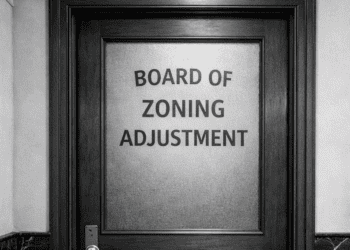The entrepreneur sitting across from me in the coffee shop relayed his frustrating experience navigating Kansas City’s regulatory requirements for opening a small business. Unfortunately, struggling or failing to open a business due to complex local regulatory requirements is not a problem unique to Kansas City. As a member of the Cities Work initiative, the Institute for Justice’s nonpartisan regulatory consulting project committed to increasing economic opportunity through local regulatory reform, I have heard similar versions of this story in cities across the country.
City leaders know how important small businesses are—creating jobs, increasing intergenerational wealth, and stimulating the local economy—but starting a small business is an uphill battle of one obstacle after another. Access to adequate capital and business education are two challenges that have gained a lot of traction in the national dialogue about entrepreneurship over the recent years, and rightly so. However, city leaders often overlook a severe obstacle that is within their immediate purview: the local regulatory environment.
Cities Work arose in this gap between the stated goals of cities and their realized actions. In 2022, we published Barriers to Business, a foundational report that quantifies the regulatory pain points for starting a small business in 20 cities across the United States. We approached this research from the entrepreneur’s perspective—mapping out the forms, in-person activities, agencies involved, fees, and steps required to turn an idea for a small business into reality. For example, we found that it costs an average of $5,300 in fees alone to start a restaurant; an average of 55 steps to open a barbershop; and most cities have onerous restrictions on home-based businesses. And these statistics do not consider the additional cost of city-caused delays, confusion due to lack of readily accessible information online, paperwork revisions, re-inspections, or hiring contractors and architects. One entrepreneur we interviewed in Kansas City faced a four-month city-caused delay to receive a permit which cost them approximately $10,000 in missed peak-season opportunities.
There is no doubt that local regulations can serve an important and valuable role in ensuring public safety, such as health and building standards. But all too often, cities diverge from enacting local regulations essential to public safety into unnecessary, subjective standards that instead serve as stumbling blocks for entrepreneurs. From discriminatory zoning to high fees, opaque inspection standards, and unreasonable neighborhood approval requirements, local regulatory environments contain many practices instilled under the guise of protecting from risk. The resulting effects disproportionately harm historically disadvantaged communities and decrease the realization of entrepreneurship as an economic mobility tool that can create generational wealth.
Thankfully, over the last few years, there has been an increase in cities interested in reforming small business regulations to increase access to entrepreneurship. To name a few, we have been able to work with dedicated city staff in Fort Worth, Kansas City, and Washington D.C. to rectify outdated regulatory practices that exist in their municipalities. Regulatory reform is an investment every city should make; not only does it benefit communities, but it also benefits local governments. By streamlining regulatory processes, cities can reduce the time and money spent on bureaucratic processes and increase the resources available for employees to use on their important responsibilities.
To serve as a guide for city officials and employees interested in enacting regulatory reform in their communities, we recently published From Barriers to Breakthroughs: A Practical Playbook for Reforming Local Regulations to Empower Entrepreneurs. This playbook will teach you how to conduct your own regulatory research, engage with your community and decision-makers, and identify and implement meaningful reforms to foster entrepreneurship. You can adapt the process to meet your local needs, and Cities Work welcomes the opportunity to consult with you on strategy and answer any questions. While regulatory reform is not a cure-all, it is a crucial step toward genuinely supporting small businesses and can have a significant impact on the entrepreneurial community in your city.










What Missouri can learn from Kansas’s budget crisis